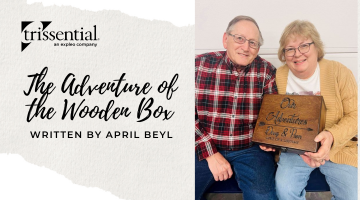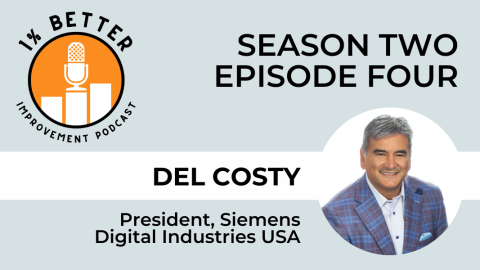
The COVID-19 pandemic has brought the global economy to such a grinding halt that oil has reached an unprecedented negative selling price – producers are paying ‘buyers’ to take it. Lockdown and shelter-at-home orders are in place across the world and most are extending beyond their initial timelines. Those employees fortunate enough to be able to work from home are doing so, albeit with some adjustments and creative compromise, but many millions more cannot and so just about every company in the economy is facing a downturn in demand for their goods or services. Unless they’re in that very narrow channel of opportunity where there’s money to be made in solving this unprecedented scale of a problem, most CEOs and CFOs are reforecasting and re-budgeting 2020, downward. Some are doing it weekly, if not daily. It’s no wonder we see headlines of unemployment figures reaching astronomical heights never seen before.
With the meltdown of the economy and the ensuing economic bloodbath, the personal impact on employees’ lives is huge – from anxiety and insecurity on one end, to loss of income, career progression, and even full loss of job on the other. There’s hardly a single person that has been shielded from disruption. In a time where we must shine for the clients we still have, we need employees to be at their best. Uneasy employees focus more on their personal welfare than clients, and anxiety lends to further distraction. It was clear that the strategy for our workforce needed to provide comfort and continuity to our employees without false promises. This article shares the major themes of our people-management strategy for navigating the COVID-19 crisis and we welcome discussion on other strategies being employed.
Get Close: Communicate
Our workforce spans multiple states, with some employees working in groups and others on solitary projects. Even after major engagement/communication initiatives, our employees still reported feeling disconnected to corporate, before the pandemic began. Employees were often more connected to their clients than Trissential, because they worked in the office at their client sites. COVID-19 leveled the playground with the WFH mandate; we seized the opportunity to get close. We implemented an immediate outreach strategy which included:
- Management Check-Ins
– Managers regularly calling each person on their team
Result: People didn’t feel bothered, they felt cared for and connected to Trissential - Weekly Town Hall Virtual Meetings
– Transparent, honest, and often raw communication on business
– Video calls from the CEO and other leaders
– Informal, open to questions
– Would often say ‘I don’t know but will get back to you’
– Provide updates on what we’re seeing globally from our peers abroad
– Share information on new governmental policies and aid available
– Keep the business running – communicate BAU topics and updates
Result: Deeper connection to leaders, feelings of good will, a ‘no surprises’ culture, where it’s okay to share any kind of news, good or bad - Virtual Happy Hours
– 5:00 p.m. video call ‘BYOB’ with colleagues
– Promoted as a social, non-work event, completely optional
– Leaders attend and don’t judge behavior
Result: Working remote and social distancing creates isolation, but this built togetherness and social connectedness through chit-chat/banter. Employees who didn’t work on projects together met for the first time and began dialogue and relationships
Give Hope to the Future
It’s natural to get totally sidetracked by the crisis and to operate entirely in a reactive manner. The traditional business day is turned on its head and leaders are focusing on solving immediate problems; we’re re-planning constantly. While we cannot pretend there’s no crisis, we can ensure there’s a balance in our increased communications between COVID-related topics and the plans we had for the company before we hit the storm. We are focusing efforts where we can make the company stronger during the lag of business; things we never had time to attend to now have new life. Processes are being redefined and streamlined, efficiencies are being created. We turn efforts to knowledge capture and cataloging so others can find later. Improvements are made that will enable us to scale when we need to grow again. This breathes hope into times of distress and gives bright minds moments of exploration.
Be Minimally Invasive
Tough decisions must be made in the re-budgeting process. Decreased revenue needs decreased costs or soon there’s no business; costs must be cut and that’s never easy. We decided to start early but start minimally. Our first pass was to reduce work time by having all leaders, corporate staff, and salespeople take every Friday as voluntary PTO or unpaid time off. Because of the downturn in business, workloads had fallen, and this first pass gave everyone a needed break. We coined ‘Friday as the new Saturday,’ which resulted in no emails, no calls, and everyone has more quality time at home. It also set the stage that other efforts would need to come, but we aren’t jumping off a cliff. When we decided the next step was to sacrifice annual bonuses, because of the first minimally invasive step, this was accepted as a positive, ‘must do’ step. When challenged to right-size the org chart due to lower sales and lower hiring, we only pruned if necessary, rather than cutting back the whole tree. Minimally invasive has become a motto we live by and use to guide our decisions.
One Size Fits One
If there is one thing that we have to say we’re most proud of, it’s adopting the ‘one size fits one’ filter. Everyone is at their own personal place in the crisis. An employee may be sick with COVID-19 or caring for someone who is while many are balancing work-from-home and home-schooling. Our clients are no different; they’re fighting for their own survival and in the process demanding concessions or cancelling orders. Everyone we talk to, be it client or employee, is experiencing a form of social isolation and worry. We adopted a people-centric, ‘one size fits one’ approach which means we apply a thoughtful, considerate and compassionate approach to each situation. Our goal is that we have the best possible outcome and the softest possible landing for each person – client, employee, partner. One size fits one. This perspective entails understanding each person’s unique and personal situation through open dialogue with a person who can make decisions. The Head of People Services calls each person impacted and together they weigh options and most optimal outcomes. The CEO and/or Head of Delivery work directly with clients to understand how to solve short-term goals that fit with long term directives. Projects are reduced in hours vs completely shut down. Payments are deferred. Each problem has a unique solution. It’s a high-touch, heavy-effort approach that only works if you have knowledgeable, passionate people-centric people driving this.
No doubt about it, the current crisis will leave deep and lasting impacts on society and on how we do business. There are, however, timeless principles which should endure when it comes to people management; treating people with respect, acting with integrity and being open and honest to name a few. Lives and livelihoods are being impacted and that is a tragedy, but the longer-term tragedy will be if social distancing blunts our senses to personal, human interactions. It’s in a crisis that true character can show through. Our mission has always been to have a positive impact on the lives of anyone who interacts with Trissential. We stay our course.
Trevor Luyt: Head of Delivery, Operations & Professional Services
Mecca Robbins: Director, People Services









